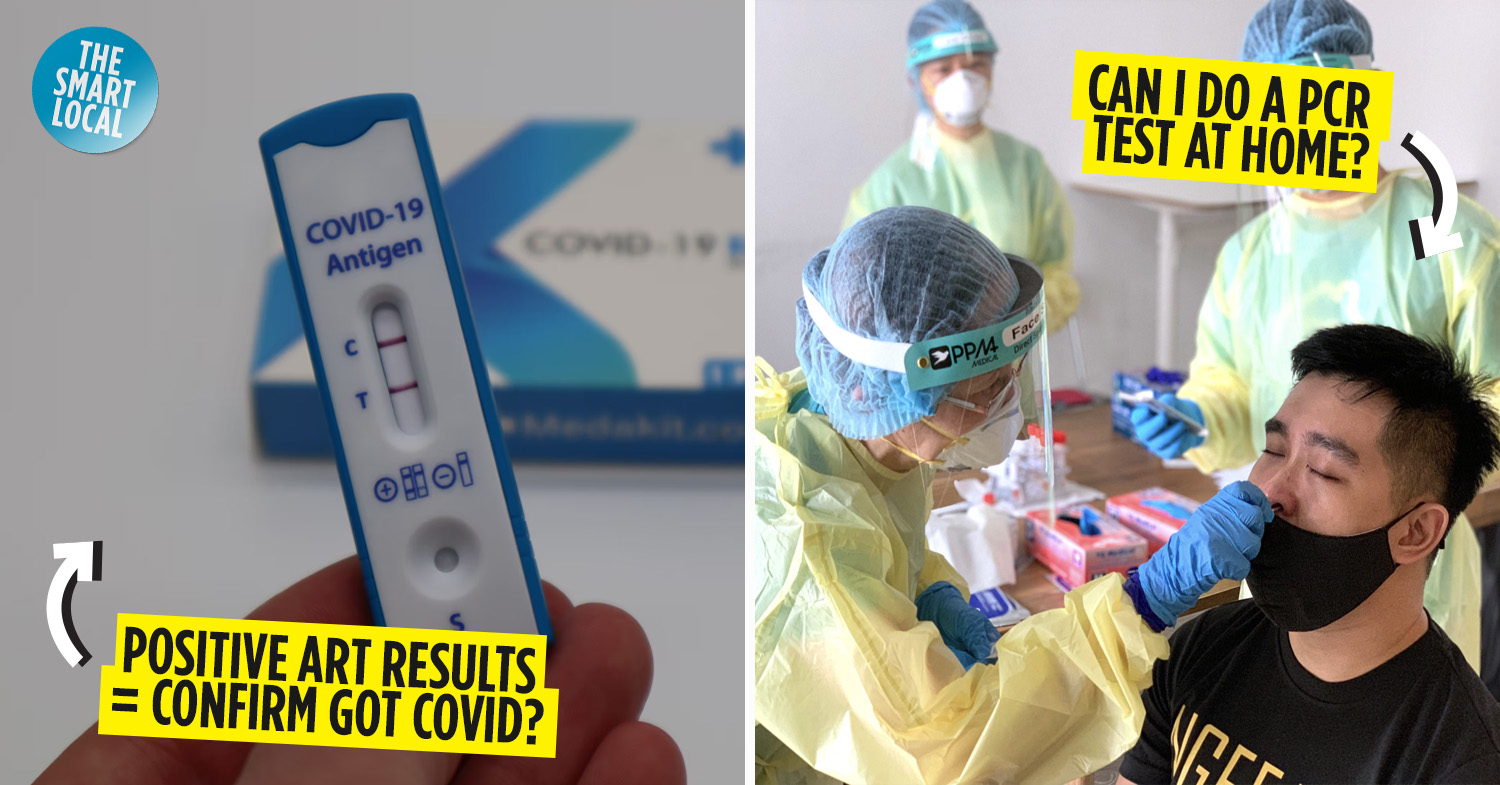Covid-19 tests FAQ
Since the cursed pandemic entered our lives in 2020, things like temperature checks and regular ART tests have become part of our new routines. And while swabbing our nostrils might soon become way more commonplace than we’d like, there’s not much we actually may know about the test process itself.
We sat down with Natasha Said, a nurse working with Homage – a holistic health and caregiving organisation that provides home-based PCR test services in Singapore. Having administered about 1,000 PCR tests daily at the height of the pandemic, Natasha seemed all too familiar with the questions we had to ask.
1. How often should we test ourselves at home?
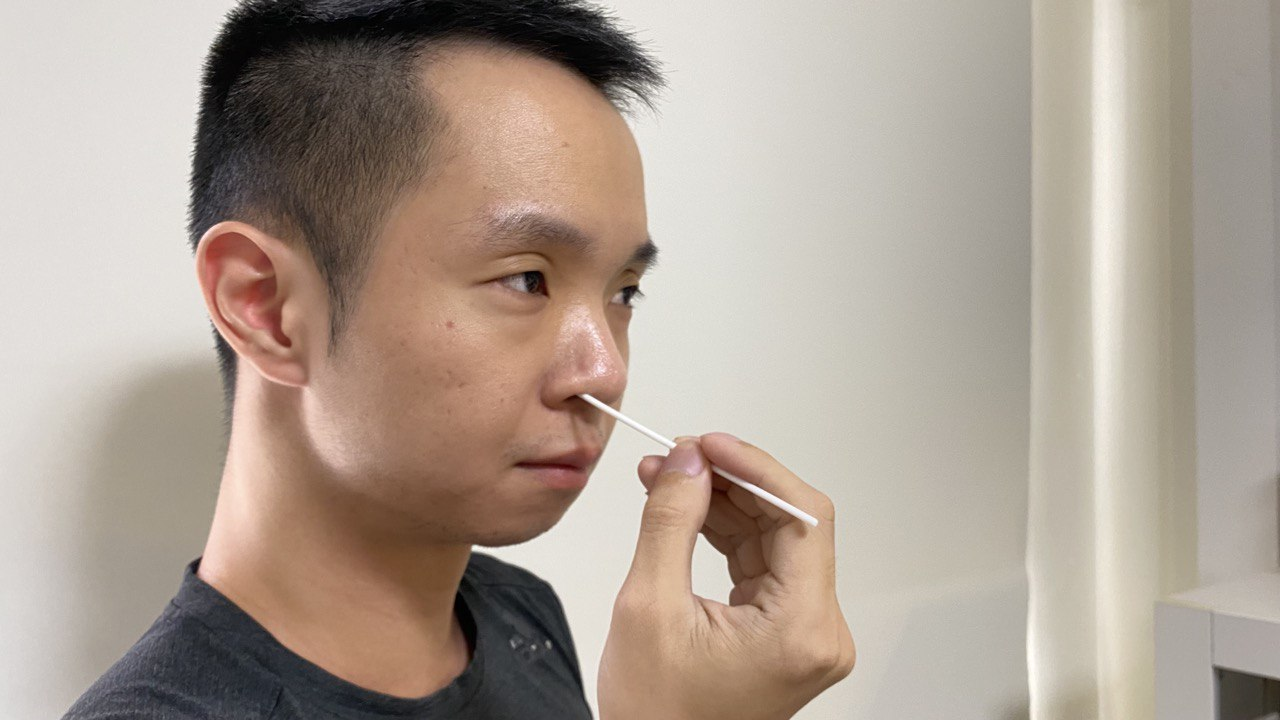
Image credit: Josiah Neo
With many of us getting used to heading back to the office for work, we may have been required to do weekly swab tests at home. According to Natasha, the recommended number of times to conduct an at-home ART test is actually twice a week for a more accurate result.
Since people infected with the virus can become contagious 48 hours before symptoms even start to show, testing yourself just once a week might not be enough. This is especially so for those who are constantly heading out and about and coming into close contact with others.
2. Does the PCR test hurt more than ART?

Image credit: Homage
While our ART test swabs only go up to about 2CM into our noses, PCR tests can be a whole different experience, with some patients even claiming it to feel like they’re being “poked in the brain”. Since sticking a foreign object up your nose regularly can be a rather dubious process, we thought to ask if there were any real dangers to frequent swabbing.
Natasha shared that, while getting tested wasn’t going to bring danger to our health in any way, it is extremely important to stay calm during the process. The biggest tip is to try and not move while getting swabbed as it could potentially result in the stick going a little deeper than it should, which can cause bleeding.
Though this “fun” fact did little to alleviate my nerves surrounding PCR tests, it did reassure me to know that I’d be in professional hands at the end of the day.
3. Does a positive ART test mean I really have Covid-19?

Image credit: US Embassy
As much as you might have gotten a hang of ART tests, it still comes with a whole lotta anxiety. After all, the last thing you wanna see are double lines on your test kit – meaning a positive Covid-19 result. However, it would be good to know that testing positive in an ART test doesn’t necessarily mean you confirm plus chop have the virus.
One thing Natasha recommended was to retake the ART test and immediately book a PCR test to be sure of your results. In the meantime, just self-isolate and take care of yourself by paying close attention to any symptoms that may arise.
In Singapore, PCR nasal tests are known to give the most reliable result in obtaining an accurate Covid-19 test sample. However, PCR throat swabs are only administered if the individual is unable to have a nasal swab due to medical conditions or previous injuries.
4. Can I only do the ART test at home?
Home-based tests aren’t just limited to ART tests. In fact, you can get PCR tests done at home too – nifty info for those planning on travelling out of the country.
These tests can be conducted via organisations like Homage, whose usual patients consist of the elderly or those unable to leave the house. These swabs can be booked online via Homage’s website and will usually take just 15-30 minutes of your time. You’ll then receive these results on the HealthHub app (iOS | Android) up to two days from the time of your test.
5. What tests must I take if I want to travel out of Singapore?
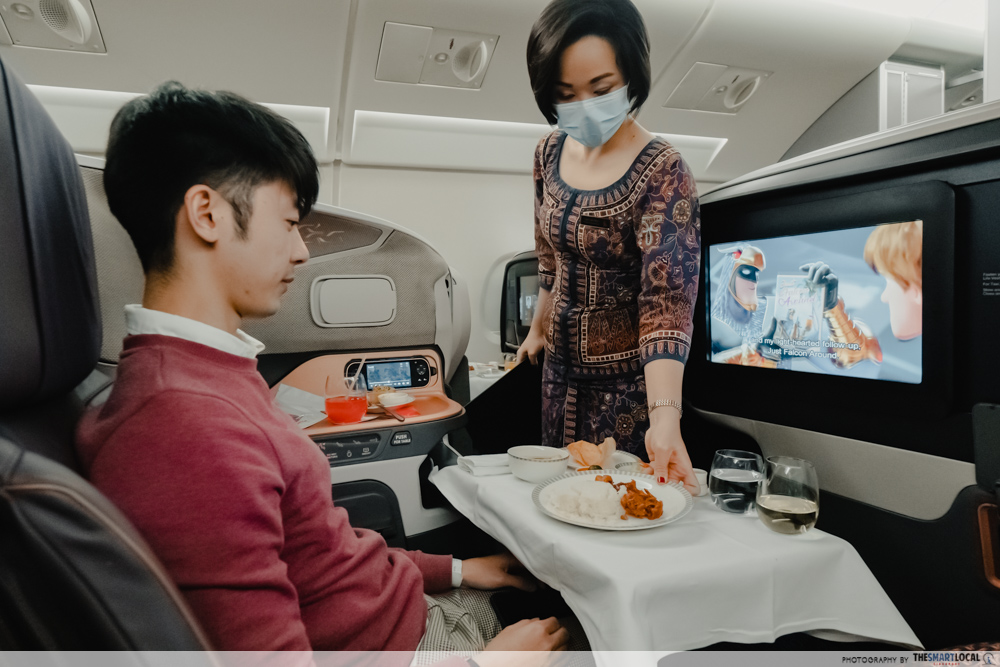
Photo for illustration purposes only
Before you start booking your PCR tests willy-nilly before jetting off on a VTL vacay, it is important to check the test requirements of the country that you are travelling to. For example, countries like South Korea and Canada require a PCR test to be done before departure whereas places like France only require an ART test.
If you aren’t planning on going anywhere and still are feeling kiasu, just note that PCR tests are recommended for those with positive ART test results and/or Covid-19 symptoms.
The full list of travel requirements can be found on the SIA website.
6. How soon can I get my PCR test results?
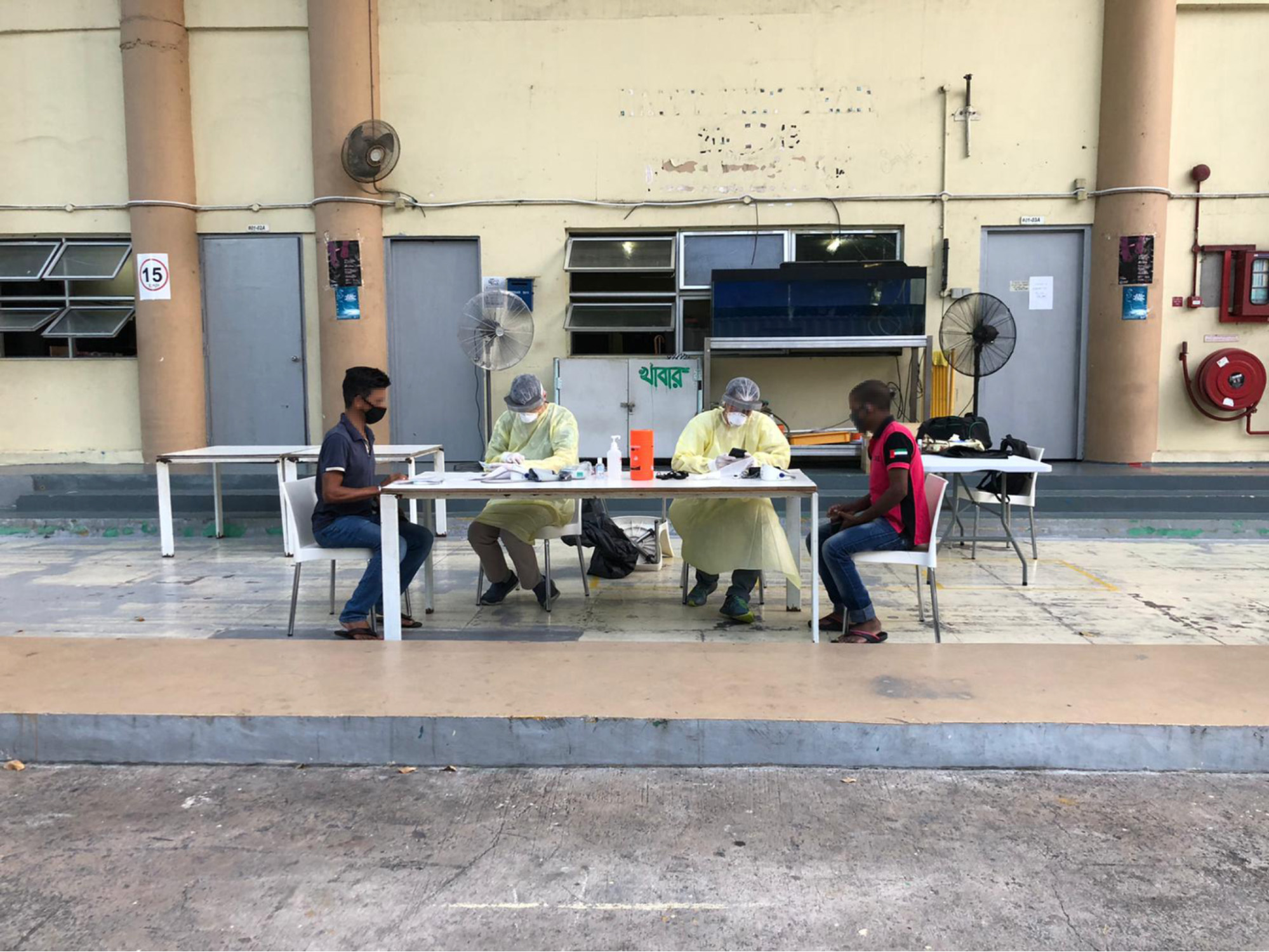
Image credit: Homage
Compared to a PCR test, ART tests definitely give you results way quicker in a matter of minutes. This makes the latter ideal for pre-event testing for large scale events such as work or concerts. But as we now know, there is a difference in just how reliable the results can be.
Thanks to its accuracy, PCR tests are best taken by those who’ve had possible exposures or are experiencing Covid-19 symptoms like a fever or cough. Thanks to modern-day technology, results can be released as soon as within 24 hours instead of having to wait for days before getting the news.
7. Is Covid-19 always contagious?
This might come as a surprise, but those who have received a positive PCR test result may not necessarily be contagious. According to some health sites and doctors, the virus can be present in the patient’s nose and throat for several weeks, long after the time that they’re actually infectious.
So while the presence of the virus will still result in a positive test result, the patient might not actually be contagious.
Keeping ourselves safe amid the pandemic
With our newfound knowledge of ART and PCR tests, we’re hopefully better prepared to tackle the virus. But with the pandemic still ongoing and germs still spreading, there’s more we can do to keep ourselves safe.
What Natasha suggests – to help not just ourselves but also our frontliners – is to stay hygienic by regularly washing our hands. With that, we can continue to do our best to stave off possible infections. Carrying out regular at-home tests will also ensure we’re aware of our own health, allowing us to take action before symptoms worsen or getting into contact with others.
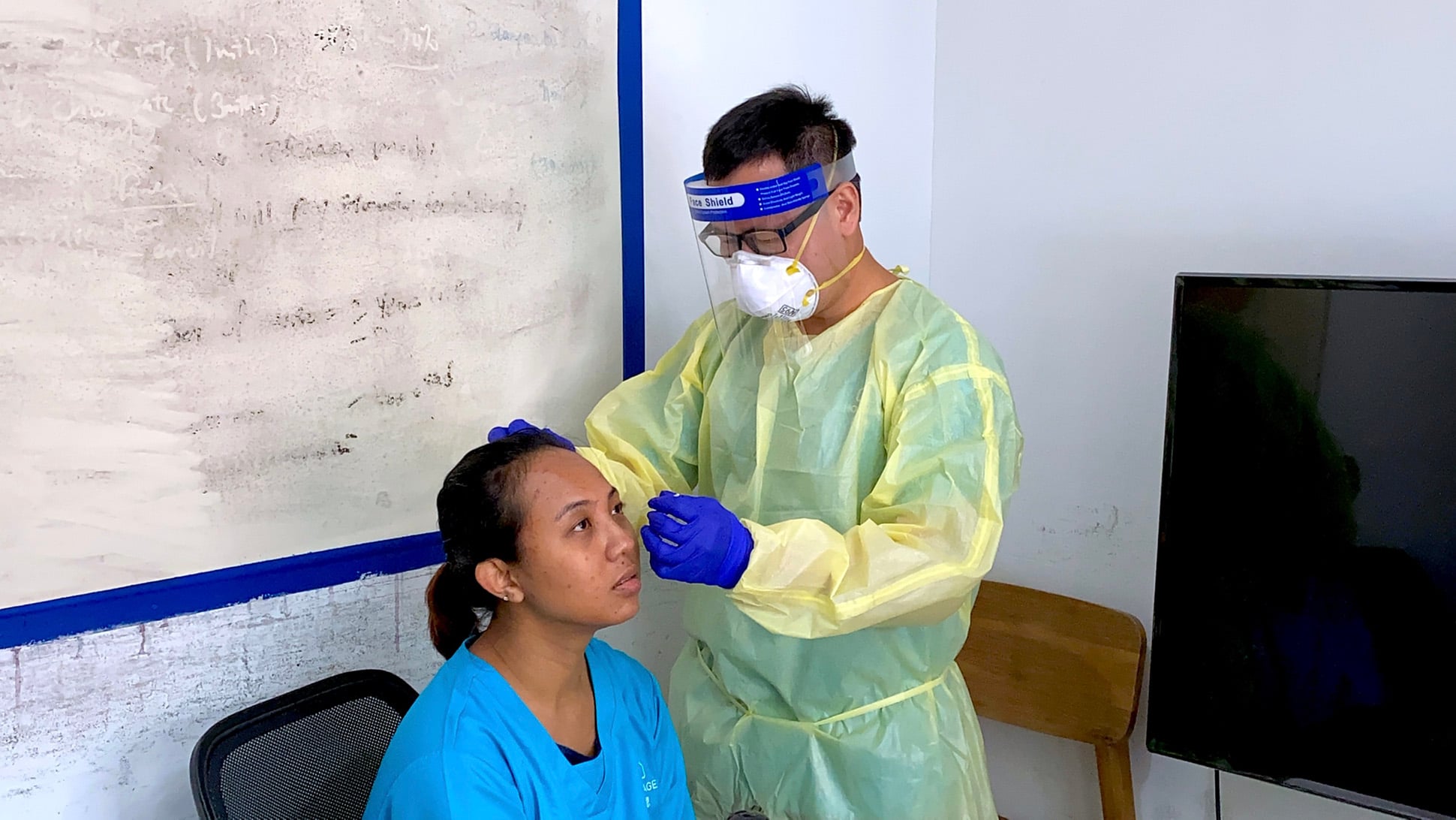
Covid swab training for Homage staff
Image credit: Homage
Dealing with the virus can be overwhelming, but organisations like Homage help make things a whole lot easier with their home-based PCR testing services. Not just limited to the elderly, this is also recommended for travellers who need to take a pre-departure test before their trip.
Aside from just conducting Covid-19 tests, Homage provides an array of home-based services such as assisted personal care, nursing care, house-call doctors, private ambulance services and physiotherapy.
These services are catered to those who need to receive treatment from the comfort of their own homes such as the elderly or those who are immobile. Their range of doctors and specialists also allow them to conduct Specialised Care like Dementia Care and Cancer Care where needed.
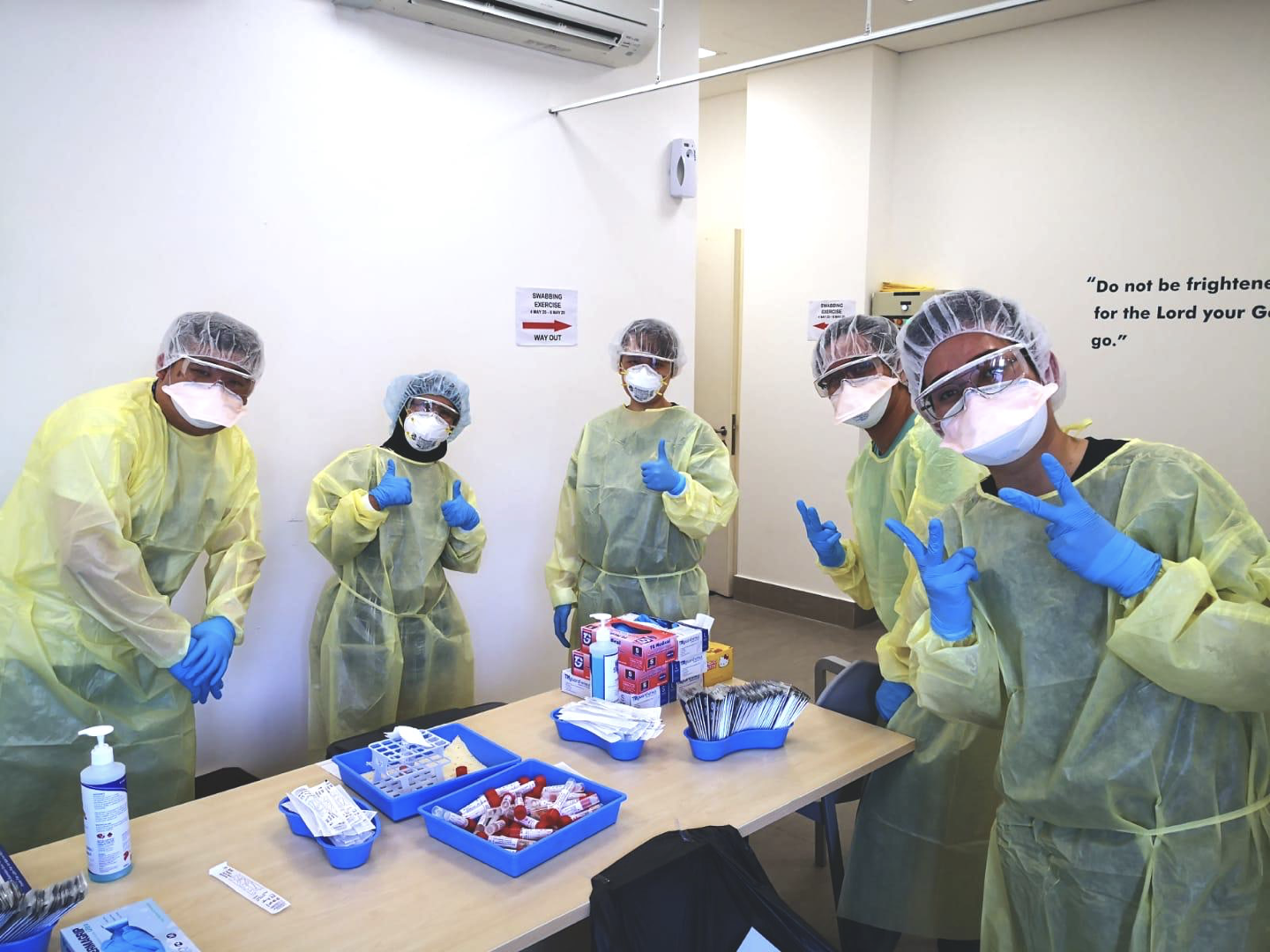
Image credit: Homage
After speaking to Natasha, I was able to form a newfound appreciation for our frontliners who continue to work hard to keep Singapore safe, even with all sorts of new variants popping up. The least we can do is to stay educated and safe during this time.
Check out our other related articles:
- How to report Covid-19 violations
- “I haven’t seen my family since Covid-19 started”
- Tips to avoid Covid-19
- How to help communities during the pandemic
Cover image adapted from: Unsplash, Homage
